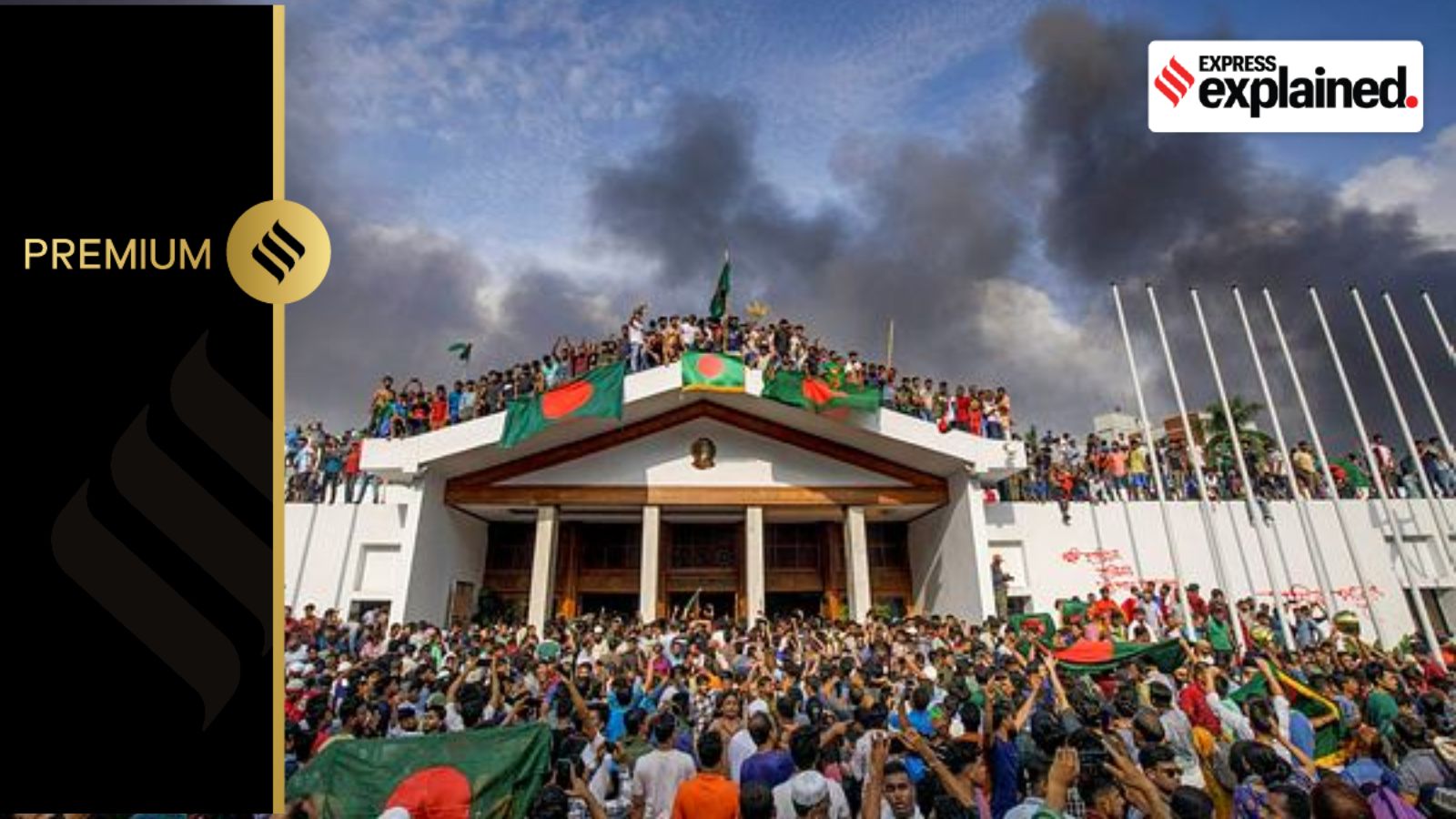© The Indian Express Pvt Ltd
Latest Comment
Post Comment
Read Comments
 People gather around the residence of Bangladeshi prime minister in Dhaka, Bangladesh, 05 August 2024. (EPA-EFE/STR via PTI)
People gather around the residence of Bangladeshi prime minister in Dhaka, Bangladesh, 05 August 2024. (EPA-EFE/STR via PTI)India will need much political and diplomatic skill in dealing with the consequences of the fall of Sheikh Hasina that could rattle the geopolitics of the subcontinent, if not reshape it. Five broad questions stand out for Indian statecraft in a crisis that has just begun to unfold.
First, can India stand by its friends? The Indian establishment has certainly ensured that Hasina was flown to safety before the angry protestors broke through to her residence in Dhaka. The story was quite different 50 years ago, when Delhi could not prevent the murder of Hasina’s father and the founder of the republic, Mujibur Rahman, and much of his family by the coup makers on August 15, 1975.
India had a similar failure in 1992, when the Pakistan-backed militant groups over-ran Kabul. Delhi could not evacuate President Najibullah out of trouble. Four years later, when the Taliban gained control of Kabul, it dragged Najibullah out of UN custody and hanged him by a lamp post.
Second, standing by friends in thick and thin is an important part of a major power’s credibility in the region and beyond. But no nation can tie its fortunes in another to one individual or party. An immediate challenge for Delhi lies in distancing itself from Hasina and engaging her opponents.
The last decade and more has seen the dramatic transformation of bilateral relationship, thanks to the forward-looking vision of Hasina. But Hasina’s drift to authoritarianism and weakening legitimacy at home have also cast a shadow on the sustainability of those gains.
Whether intended or not, Delhi is far too closely identified with Hasina and the mounting hatred against her is bound to rub off against India. That tension between support for Hasina and her growing unpopularity at home has been evident in the last few years.
When Hasina’s declining political credibility was highlighted by the Biden Administration, the public discourse in India seemed to diss Washington rather than come to terms with a changing reality on the ground.
One hopes the government agencies were a little smarter than the public argument. Monochromatic discourse on foreign policy, with very little questioning of the assumptions underlying it, inevitably comes back to bite Delhi.
The next few days will reveal whether the Indian establishment had developed working relationships with key figures within the Bangla opposition who have a crucial role to play in calming the public anger, facilitating a stable interim government and sustaining the high stakes partnership between the two countries.
Third, Delhi must expect that Pakistan and China would try to exploit the current churn in Dhaka and nudge the new government away from India in the days ahead. India will need to work with its friends and partners like the US, UK and Europe to limit the violence at the current juncture and work with the Bangladesh Army in ensuring a peaceful transition to a new order within Bangladesh.
Besides Pakistan, Turkey has long fished in the troubled waters of Bangladesh. Delhi would want to work with its partners in the Gulf, especially the UAE and Saudi Arabia, to develop pathways for the economic stabilisation of Bangladesh and limit the dangers of extremism.
Fourth, painful as it might be, Delhi must stop romanticising the 1971 liberation of Bangladesh. That Bangladesh is deeply divided on interpreting its history is a reality that Delhi can’t ignore. Many forces in Bangladesh do not buy into Hasina’s (and Indian) narrative on the liberation of Bangladesh.
The backlash against Hasina’s relentless effort to force her narrative down the throats of the population is already visible and could get stronger in the coming days. Delhi needs to engage with these “anti-liberation” forces without prejudice to history and on the basis of long-term mutual interest. While Hasina may have had reasons to get stuck with 1971, India has little strategic incentive to be tied down by it.
The story of India-Bangladesh relations is not just about 1971. The Partition of 1947 has never stopped casting a dark shadow over the relationship. The last few years have seen Delhi and Dhaka try and overcome many of Partition’s bitter legacies. But the unfolding crisis in Bangladesh is a reminder that both sides are nowhere near closure.
Finally, Indian debates on the neighbourhood, however, tend to be self-referential. Indian foreign policy discourse must recognise that developments in the neighbourhood are not just about Indian resolve, good will or strategy. India’s neighbours have politics of their own; these can’t be determined by Delhi. They also have agency of their own in shaping their political destiny at home and the world.
India will need enormous strategic patience, faith in the logic of geography, belief in the centrality of commerce, and a strong political commitment to transcend the Partition pathologies in building relations with a changing Bangladesh.
(The writer is a visiting professor at the Institute of South Asian Studies, National University of Singapore, and Contributing Editor, international affairs, for The Indian Express)